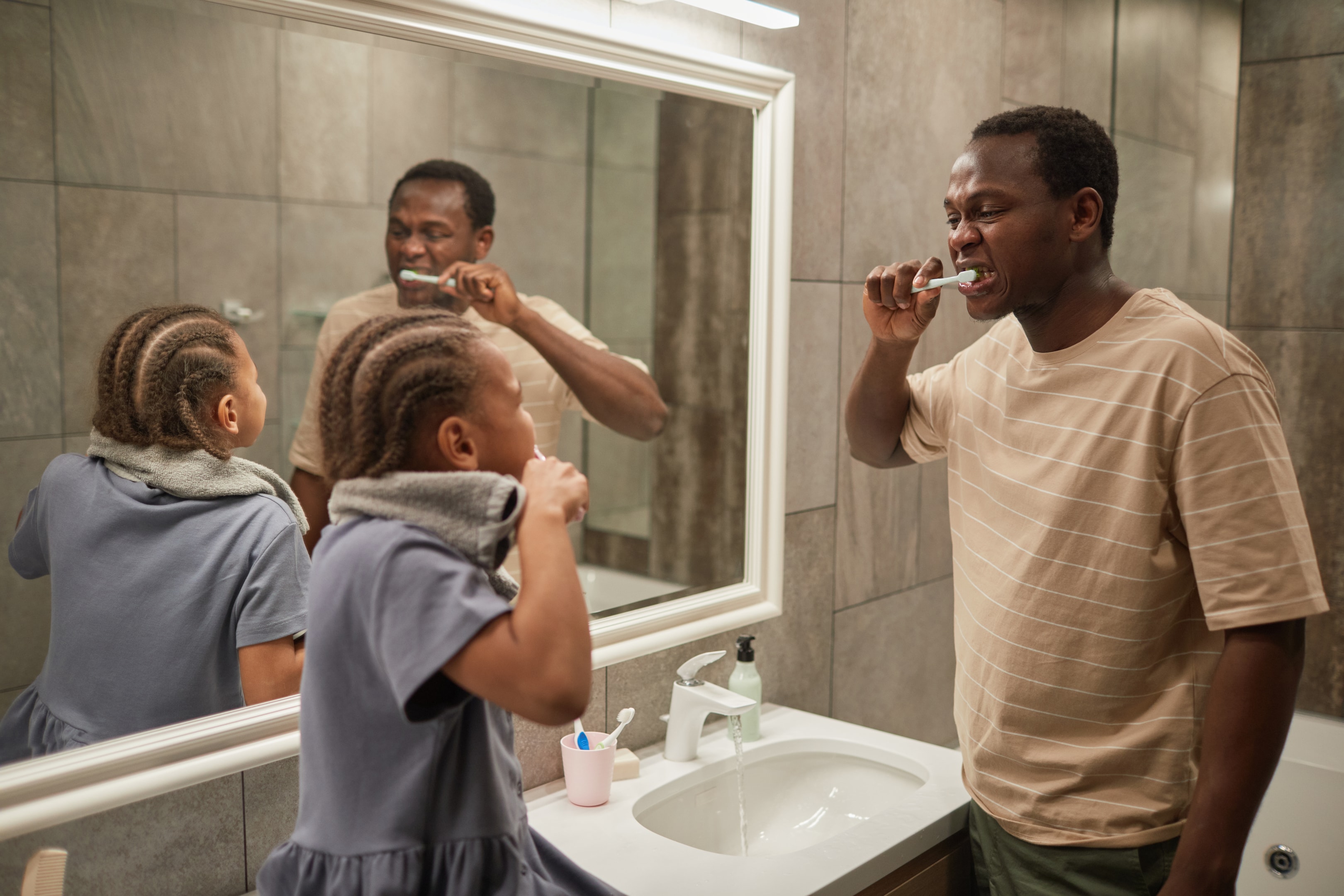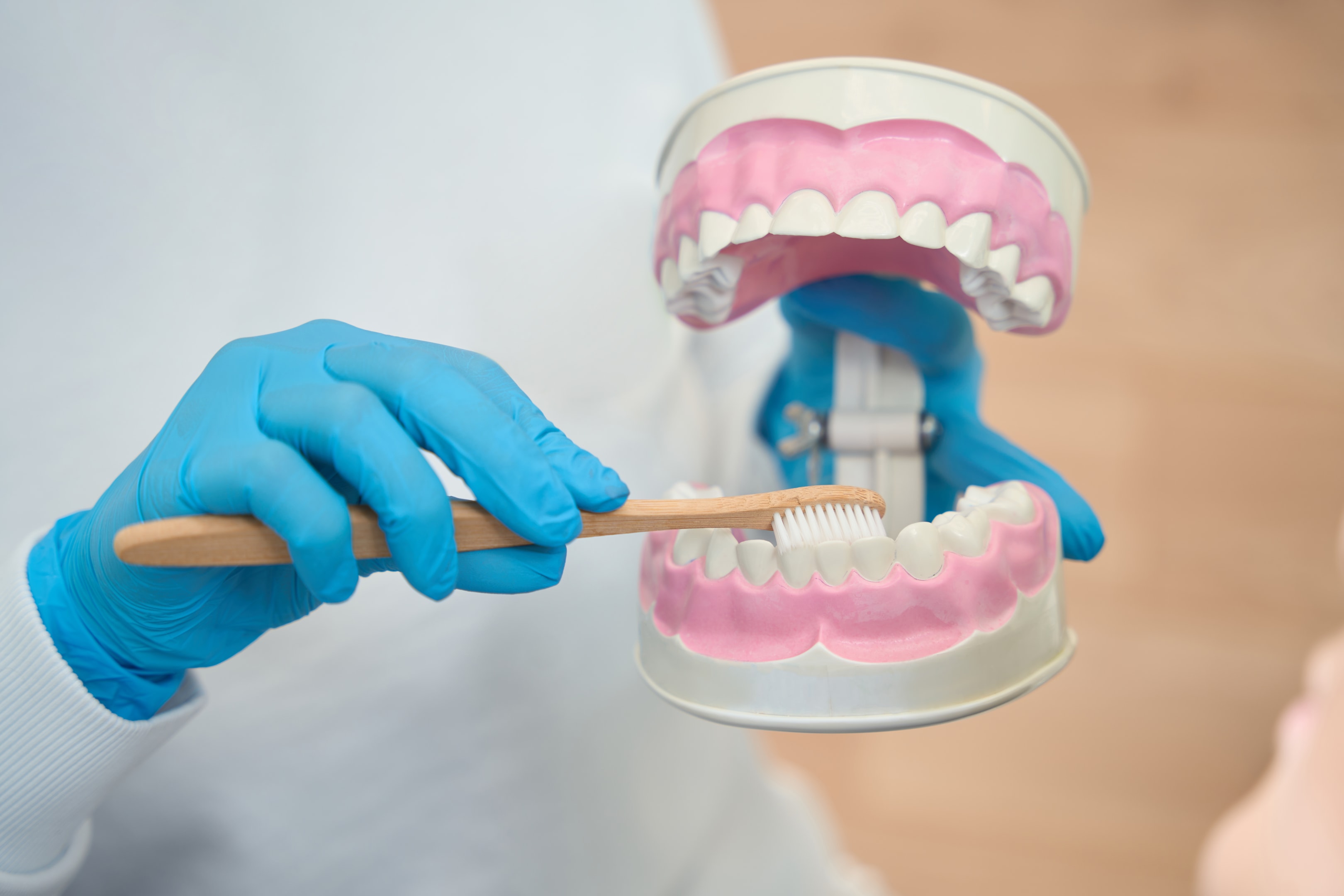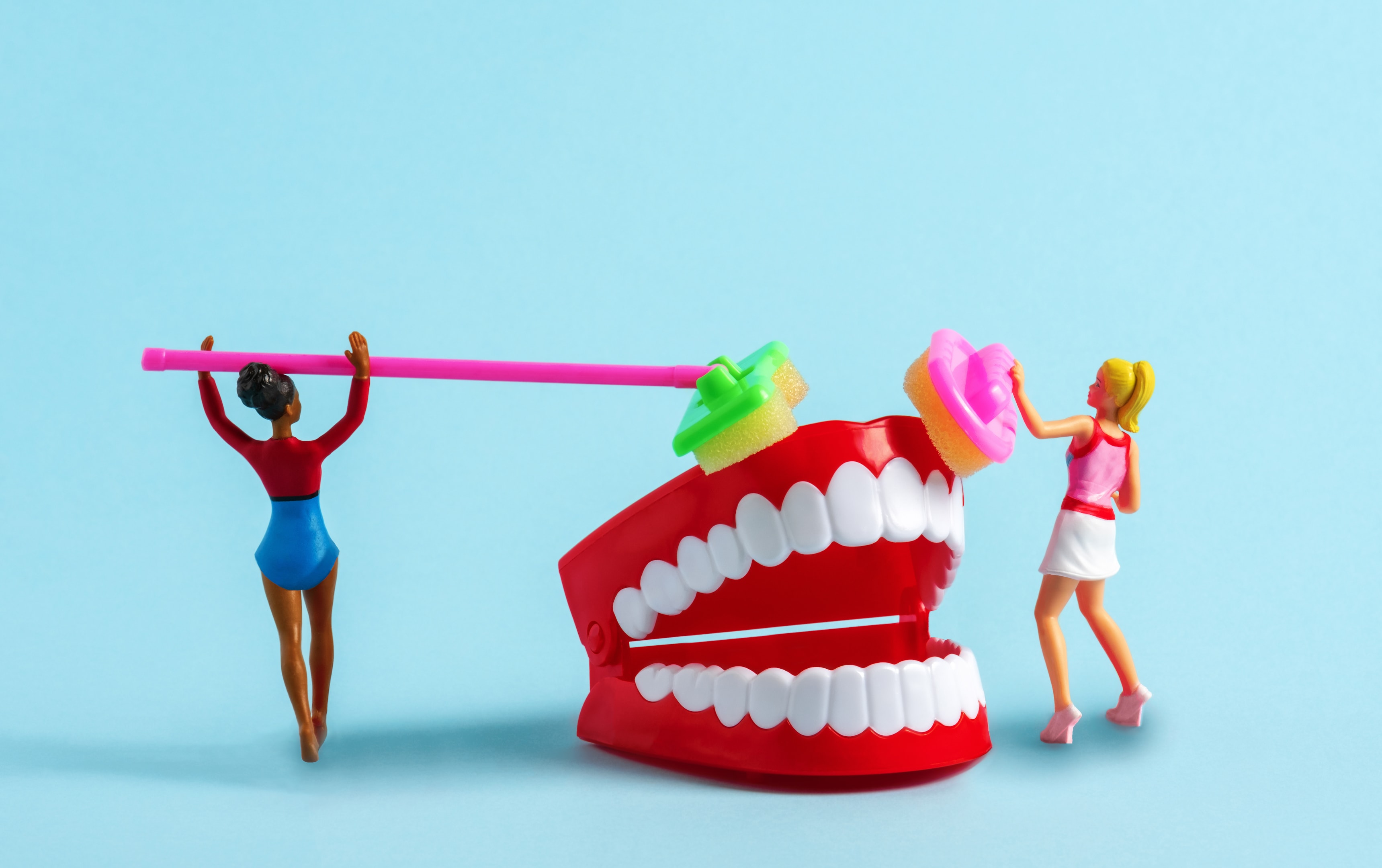
Tooth extraction can feel like navigating through a dental storm, but brushing teeth after a tooth extraction procedure is your lighthouse guiding you to safe shores.
This critical aspect of post-extraction care ensures your mouth heals properly and remains healthy. At South Calgary Oral Surgery, our team of dedicated oral surgeons is here to help you understand the best practices for maintaining your oral hygiene after an extraction.
Let’s dive into the essentials of brushing your teeth post-extraction and why it’s so important.
What You Will Learn:
When to start brushing after an extraction
Why brushing is crucial after a tooth extraction
The impacts of brushing teeth after tooth extraction
When to Start Brushing After a Tooth Extraction
Timing is Everything: The First 24 Hours
Just like any good recovery process, the first 24 hours after a tooth extraction are crucial. It’s vital to let the blood clot form undisturbed, which acts as a protective layer over the extraction site. During this period, avoid brushing the extraction area entirely.
Instead, focus on the rest of your teeth with gentle, careful strokes. Use pain medication, both over-the-counter and prescription, to manage initial pain and discomfort, and be cautious about signs of infection. Contact your doctor if the pain persists.
The 2-3 Day Mark: Easing Into Routine
48 hours following tooth removal, you can start to carefully clean the area around the extraction site. Use a soft-bristled toothbrush and gently brush without disturbing the clot. Avoid using toothpaste initially, as it might irritate the wound.
One Week Post-Extraction: Back to Basics
By the end of the first week after surgery, you should be able to resume your normal brushing routine, but continue to be gentle around the extraction site. The key is to prevent any vigorous movements that could dislodge the healing clot.
Practical Tip: Use warm saltwater rinses instead of mouthwash to keep the area clean without causing irritation.
Why Brushing is Crucial After a Tooth Extraction

Brushing your teeth after a teeth extraction is crucial to prevent infection and promote healing. Maintaining good oral hygiene during the recovery process helps to avoid complications and ensures a smooth healing period.
Preventing Infections: Your Mouth’s Best Defense
After an extraction, your mouth is more susceptible to infections. Bacteria can easily accumulate around the extraction site if proper oral hygiene is not maintained. Brushing teeth after tooth extraction helps remove food particles and bacteria, reducing the risk of infection.
Promoting Healing: A Clean Slate
Keeping the extraction site clean after wisdom teeth extraction promotes faster healing. Plaque and food debris can interfere with the formation of new tissue, prolonging the healing process. Regular brushing ensures that your mouth stays clean and conducive to healing.
Overall Oral Health: Maintaining the Balance
Maintaining good oral hygiene after an extraction ensures that your other teeth and gums stay healthy, preventing secondary dental issues. Brushing your teeth after wisdom tooth extraction is crucial for maintaining the delicate balance needed for overall oral health.
Practical Tip: Use a soft-bristled toothbrush and gentle circular motions to clean your teeth without disturbing the extraction site.
The Impacts of Brushing Teeth After Tooth Extraction
Improved Healing Time
Studies have shown that maintaining oral hygiene post-extraction significantly improves healing time. A clean mouth allows the tissues to regenerate without interference from bacteria or food particles.
Statistic: According to a study published in the Journal of Clinical Periodontology, patients who maintained good oral hygiene post-extraction experienced a 30% faster healing rate compared to those who did not.
Reduced Risk of Dry Socket
Dry socket, a common complication after tooth extraction, occurs when the blood clot is dislodged, exposing the bone and nerves. Gentle brushing helps keep the area clean without disturbing the clot, reducing the risk of dry socket.
Enhanced Comfort and Less Pain
Proper brushing can help reduce inflammation and discomfort. By keeping the area clean, you minimize the chances of infection and inflammation, leading to a more comfortable recovery process.
Industry Quote: “Oral hygiene is a cornerstone of post-extraction care. Proper brushing not only prevents complications but also ensures a smoother, quicker recovery.” – Dr. Miller Smith, Oral Surgeon
Practical Tips for Brushing Teeth After Tooth Extraction

After the dental procedure, it is important to follow specific dietary guidelines to ensure proper healing and avoid complications.
Stick to soft foods such as applesauce, mashed potatoes, pudding, yogurt, broth, or soup. Avoid chewy foods, hot drinks, and using a straw to prevent complications.
Choose the Right Tools
Using the right toothbrush is crucial. Opt for a soft-bristled toothbrush to minimize irritation. Electric toothbrushes should be avoided initially, as they can be too harsh on the extraction site.
Be Gentle and Mindful
Avoid brushing directly over the extraction site. Instead, focus on the surrounding teeth and use gentle, circular motions. Pay special attention to your molars and other hard-to-reach areas.
Incorporate Rinsing into Your Routine
Rinsing with warm salt water is important to keep the extraction site clean and promote healing. Do this gently, especially within the first few days post-extraction.
Practical Tip: Make a saltwater rinse by mixing half a teaspoon of salt in a cup of warm water. Use this solution to rinse your mouth gently after meals.
Common Mistakes to Avoid When Brushing After Tooth Extraction
Brushing Too Soon
Starting to brush too soon after an extraction can dislodge the clot and delay healing. Stick to gentle rinsing during the first 24 hours and avoid the extraction site.
Using Toothpaste Too Early
Toothpaste can be abrasive and irritate the extraction site. Wait at least 48 hours before reintroducing toothpaste into your brushing routine.
Vigorous Rinsing
While rinsing is important, doing it too vigorously can also dislodge the clot. Stick to gentle swishing, especially during the first few days post-extraction.
Practical Tip: After the initial healing period, consider using a fluoride mouthwash to protect against cavities without irritating the extraction site.
Brushing Teeth After Tooth Extraction: Your Questions Answered

How Long Should I Avoid Brushing the Extraction Site?
Typically, you should avoid brushing directly over the extraction site for at least a week. Focus on gentle cleaning around the area to keep it free from bacteria.
What If I See Bleeding While Brushing?
If you notice slight bleeding while brushing, don’t panic. It’s normal to experience minimal bleeding. However, if bleeding persists or is heavy, contact your oral surgeon immediately.
Can I Use an Electric Toothbrush?
It’s best to avoid using an electric toothbrush for the first week. Once the extraction site has healed sufficiently, you can gradually reintroduce your electric toothbrush, but be gentle.
Practical Tip: If in doubt, consult your oral surgeon for personalized advice tailored to your specific situation.
Conclusion: Smooth Sailing to Recovery
Navigating the post-extraction phase can be a bit daunting, but with the right knowledge and care, you can ensure a smooth recovery. Brushing teeth after tooth extraction is a vital part of maintaining your oral health and speeding up the healing process. Remember, gentle care is key – treat your mouth with the tenderness it needs during this time.
At South Calgary Oral Surgery, we’re here to support you every step of the way. Whether you’re in SE or SW Calgary, or the surrounding communities, our team is dedicated to providing you with the best care possible. Keep these tips in mind, and your healthy smile will be back in no time!
Inspiring Message: “A healthy smile is a journey, not a destination. Take it one gentle brush at a time, and you’ll get there.”
For more personalized advice and support, don’t hesitate to reach out to us at South Calgary Oral Surgery. Your health and well-being are our top priorities.







